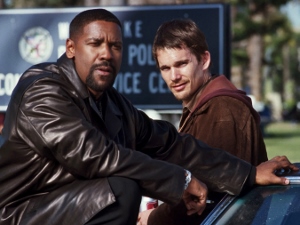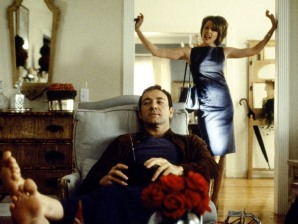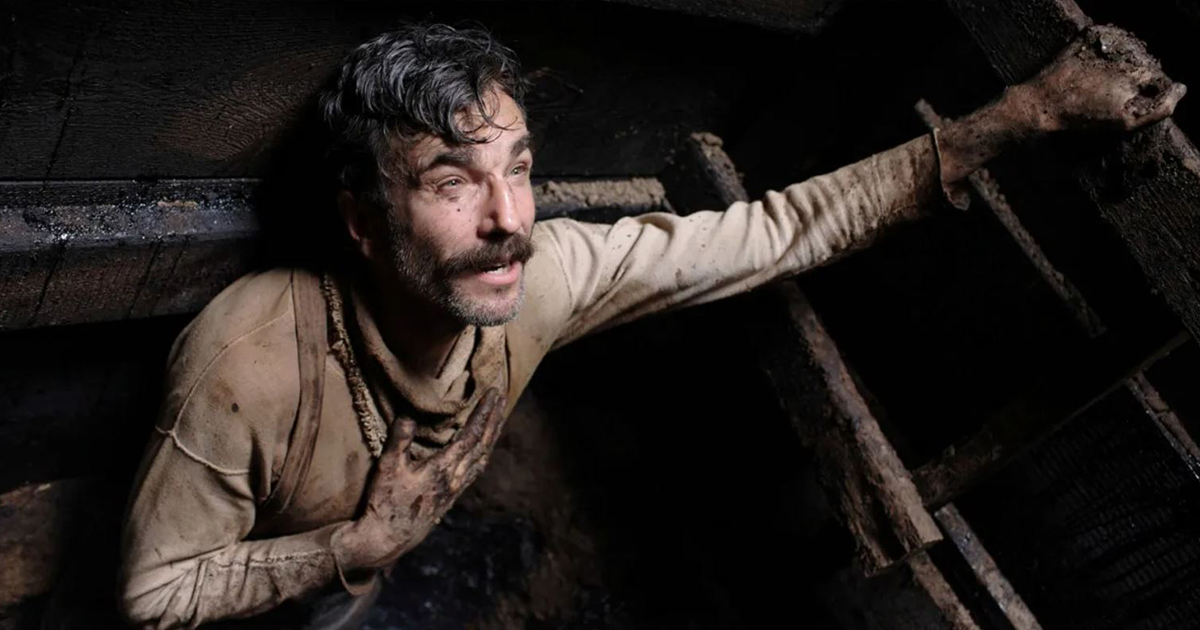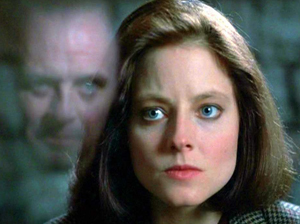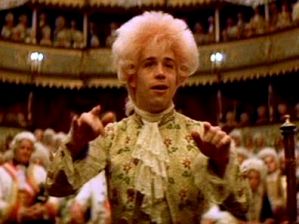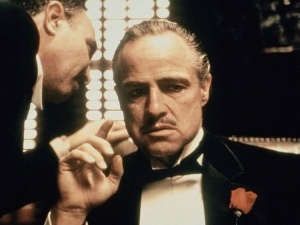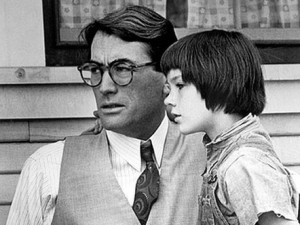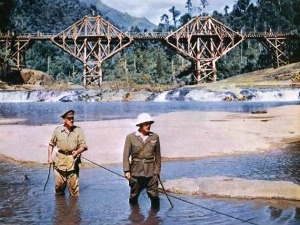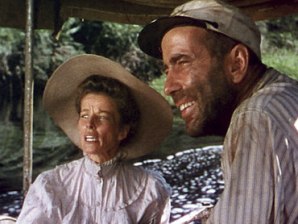American Beauty (1999)
[5]
SPOILER REVIEW
I really liked American Beauty when it was first released. Maybe I was wooed by its quirky introspection and aesthetic achievments. Or maybe it was screenwriter Alan Ball’s fresh new way of blending the real with the surreal. Or even the meditative lilt of Thomas Newman’s trend-setting score. But whatever the reason(s), watching the film ten years later, I realize — American Beauty ain’t all that. It’s kinda whack.
There Will Be Blood (2007)
The Silence of the Lambs (1991)
[9]
Here we have a horror film so classy, it won the Oscar for Best Picture. Anthony Hopkins and Jodie Foster each deliver career-defining performances as Hannibal Lecter and Clarice Starling, the central characters in author Thomas Harris’ perverse contemporary retelling of Beauty and the Beast. The screenplay balances their provocative banter with a well-constructed mystery surrounding the identity and whereabouts of a serial killer named Buffalo Bill. Ted Levine gives a excellent, unnerving performances as Bill, a man who kidnaps hefty gals and keeps them in a pit. It’s from that vantage point you hear the film’s infamous (and now campy line): “It rubs the lotion on its skin or it gets the hose again.”
Amadeus (1984)
[10]
Straight biographies rarely make great film, but by filtering the subject through another man’s envy, director Milos Forman (One Flew Over the Cuckoo’s Nest) delivers one of the best bio-films I’ve ever seen. This isn’t a film about a composer and his music (how boring would that be?) — it’s a film about an insanely jealous contemporary named Salieri. Salieri, played brilliantly by F. Murray Abraham, turns Mozart’s life and accomplishments into his own personal battle with God. Just watch Abraham pretend to be Mozart’s best friend, all while plotting to destroy him, and you quickly appreciate why the man won an Oscar for his performance.
Network (1976)
The Godfather (1972)
To Kill a Mockingbird (1962)
[10]
Harper Lee’s Pulitzer Prize-winning novel is lovingly adapted to film by director Robert Mulligan, screenwriter Horton Foote, and producer Alan J. Pakula. Gregory Peck earned the Best Actor Oscar for his portrayal of Atticus Finch, a lawyer of uncompromising morals who puts the safety of his family on the line to defend Tom Robinson (Brock Peters), a black man accused of raping a white woman. Finch is also a widower, raising his two young children with the help of his maid Calpurnia (Estelle Evans). The narrative is made a coming-of-age story through the eyes of Finch’s youngest, the feisty Jean Louise — or Scout (Mary Badham) as she’s nicknamed. Scout’s perspective on racism is balanced with her own fear and ignorance surrounding a neighbor named Boo Radley (Robert Duvall), who turns out to be her salvation when she and her brother are attacked by a bigot seeking revenge on their father.
The Bridge on the River Kwai (1957)
[8]
A British colonel (Alec Guinness) leads his fellow POWs in constructing a bridge for their Japanese captors, unaware of the fact that allied forces, guided by a reluctant American (William Holden), have launched a covert mission to destroy it. David Lean’s film zips along remarkably well considering it’s nearly-three-hour running time. The film benefits from its exotic locale, Oscar-winning cinematography, and distinguished performances.
The African Queen (1951)
[9]
Charm can take a movie a long, long way. With Katharine Hepburn and Humphrey Bogart in their only film together, The African Queen goes the distance. She’s Rosie, the prudish widow of a missionary, and he’s Charlie, the rough-around-the-edges steamboat captain. Director John Huston puts them in a small boat together and lets the sparks fly. We need only a simple plot to drive this movie forward — Charlie and Rosie are determined to sink a German gunship that blocks the mouth of the river, so they make their own torpedoes and head straight into danger. The story gives ample room for the characters to quarrel and, yes, fall in love.

